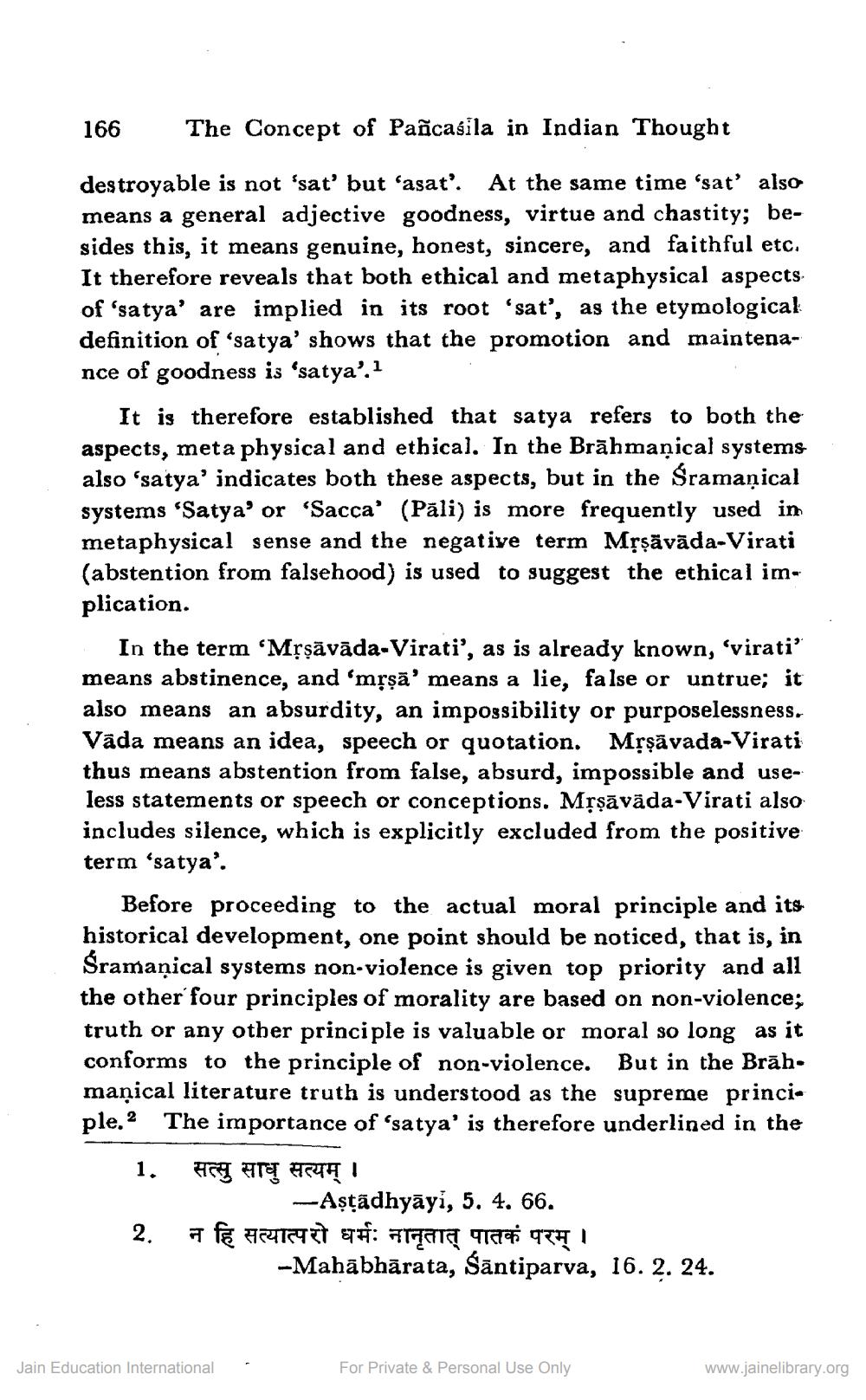________________
166
The Concept of Pancasila in Indian Thought
destroyable is not 'sat' but ‘asat. At the same time 'sat also means a general adjective goodness, virtue and chastity; besides this, it means genuine, honest, sincere, and faithful etc. It therefore reveals that both ethical and metaphysical aspects. of 'satya' are implied in its root 'sat', as the etymological definition of 'satya’ shows that the promotion and maintenance of goodness is 'satya'.1
It is therefore established that satya refers to both the aspects, meta physical and ethical. In the Brāhmaṇical systems also 'satya' indicates both these aspects, but in the Sramaņical systems 'Satya' or 'Sacca' (Pāli) is more frequently used in metaphysical sense and the negative term Mrşāvāda-Virati (abstention from falsehood) is used to suggest the ethical implication.
In the term 'Mțşāvāda-Virati', as is already known, 'virati" means abstinence, and mrşā' means a lie, false or untrue; it also means an absurdity, an impossibility or purposelessness. Vada means an idea, speech or quotation. Mrşāvada-Virati thus means abstention from false, absurd, impossible and useless statements or speech or conceptions. Mrşāvāda-Virati also includes silence, which is explicitly excluded from the positive term 'satya'.
Before proceeding to the actual moral principle and its historical development, one point should be noticed, that is, in Sramaņical systems non-violence is given top priority and all the other four principles of morality are based on non-violence; truth or any other principle is valuable or moral so long as it conforms to the principle of non-violence. But in the Brāhmaņical literature truth is understood as the supreme princi. ple. The importance of 'satya' is therefore underlined in the 1. Fry art #2441
-Aștādhyāyi, 5. 4. 66. 2. T fe LISYTI #: Frare a TRÆ
-Mahābhārata, śāntiparva, 16. 2. 24.
Jain Education International
For Private & Personal Use Only
www.jainelibrary.org




